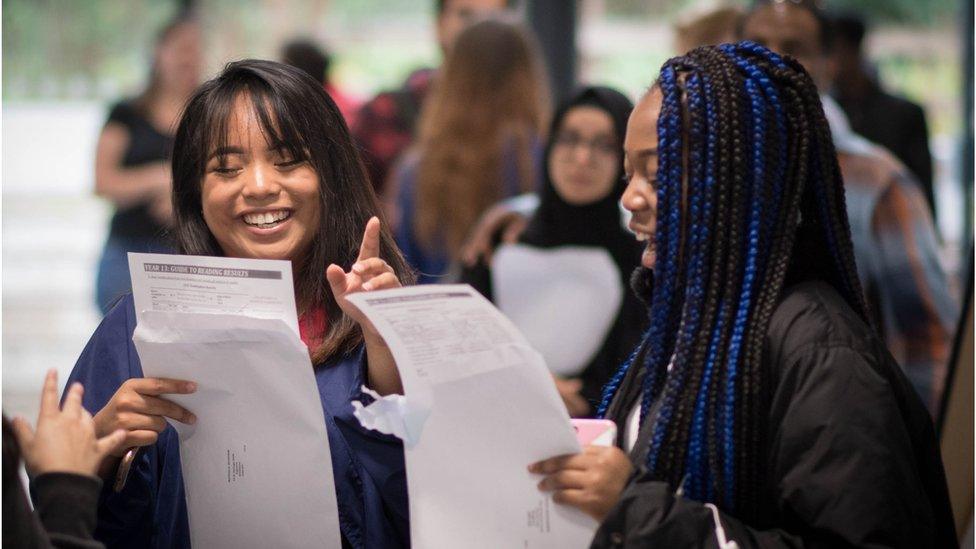GCSE and A-level results: 'It's been hell' grading exams
- Published
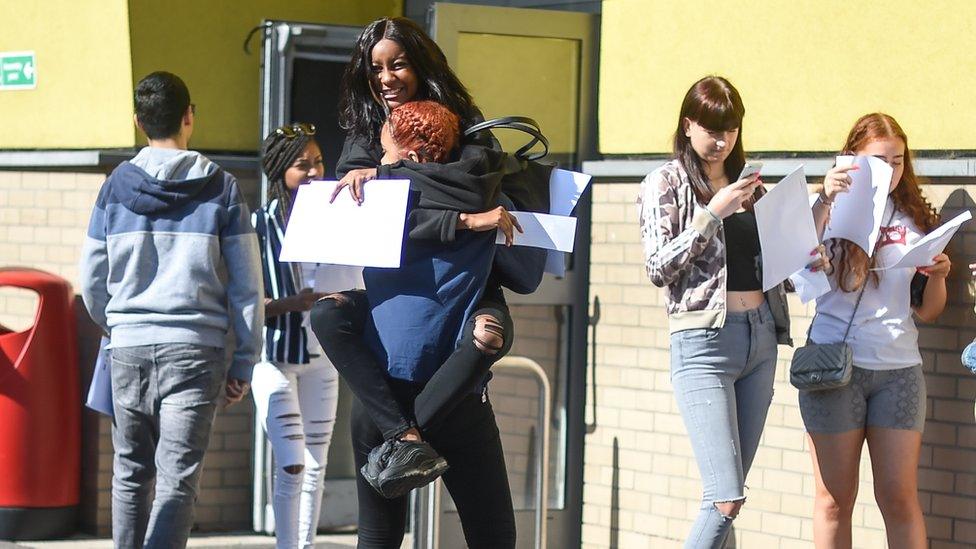
"It's been hell," says one teacher who's had to decide on the grades for her GCSE pupils.
As thousands of students have received their A-level, BTEC, Scottish Higher and GCSE results, teachers are opening up about the huge stress they've been under.
The 28-year-old, who doesn't want to be identified for fear of any backlash, says the pressure of deciding marks for students who she's only taught virtually has been the hardest period of her career.
For the second year running, exams across England, Scotland, Wales and Northern Ireland were cancelled, meaning final grades were based on assessments by teachers.
'I did nothing for myself'
The teacher of six years says the added workload of grading was "incredibly tiring" and intense for four months from March to June.
"I would go to school, mark papers, go home, eat, and then go to bed. There was no social life, I did nothing for myself because the marking took priority".
"A kid might not be able to do what they want to do in the future, because I've given them three marks, all because I'm too tired to read the paper properly and find five."
Her situation wasn't helped by suffering with long Covid after catching it back in December 2020.
"It was pretty rough. I was so tired and sleeping for 14 hours a night.
"I had a real lack of concentration and knowing I was doing marking that was impacting these kids futures was tough".
'Like preparing for court'
But drama teacher Holly Mazur feels "really confident" in the grades she gave students.
The 30-year-old compares the job of exam marking to that of a lawyer.
"Just like preparing for court, we collected as much evidence as possible and then formed the grade."

Holly says GCSEs are stressful enough, but a pandemic makes them even more difficult for students
Holly and her colleagues blind marked exam papers before they were sent off to external assessors to be moderated. She says this means her marking was "particularly strict".
"I was told if I marked my students too high, then results in other departments would be brought down, so I was incredibly critical. I failed students because I knew I had to be honest."
'Faced the biggest hurdles'
For Jess Toose, 24, the past year has been her first taste of life in teaching. "It's never going to get any harder," she says.
She's just completed her first year of teacher training at a sixth form in Bristol and says this last year has been defining.
"As a young teacher you've already faced the biggest hurdles, if I've enjoyed this year I'm sure I'll enjoy future years too."
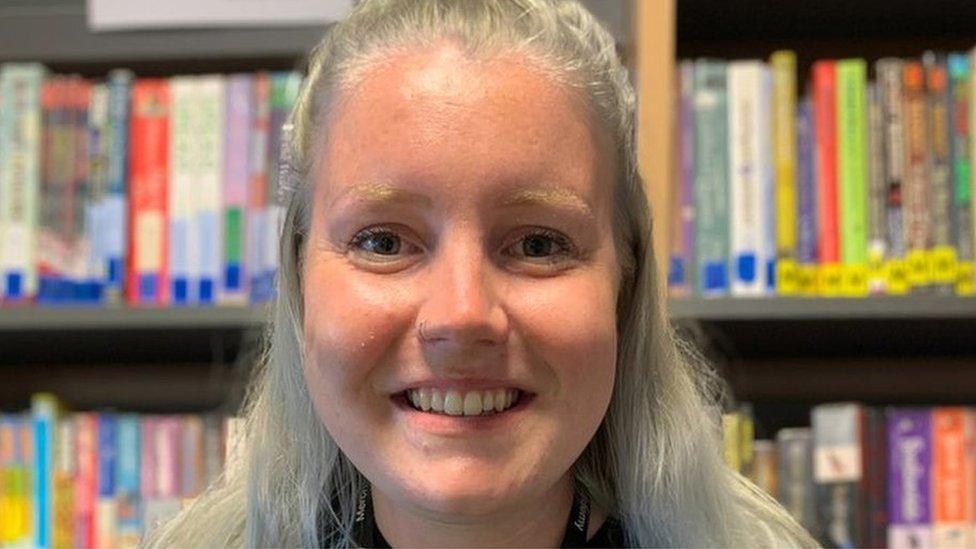
"As teachers we feel really proud to have pulled students through this past year," says Jess
Jess also found the marking process difficult as she and lots of other colleagues aren't used to grading their own students at exam level.
"It's really hard for teachers to examine children's work when you don't see them every day.
"Unlike external exams, we have a better insight into marking our students' academic ability, but in this case, we need to grade them with the same rigour and so the pressure is big.
"I know loads of teachers who are feeling particularly stressed because they're worried about whether their marking has been good enough."
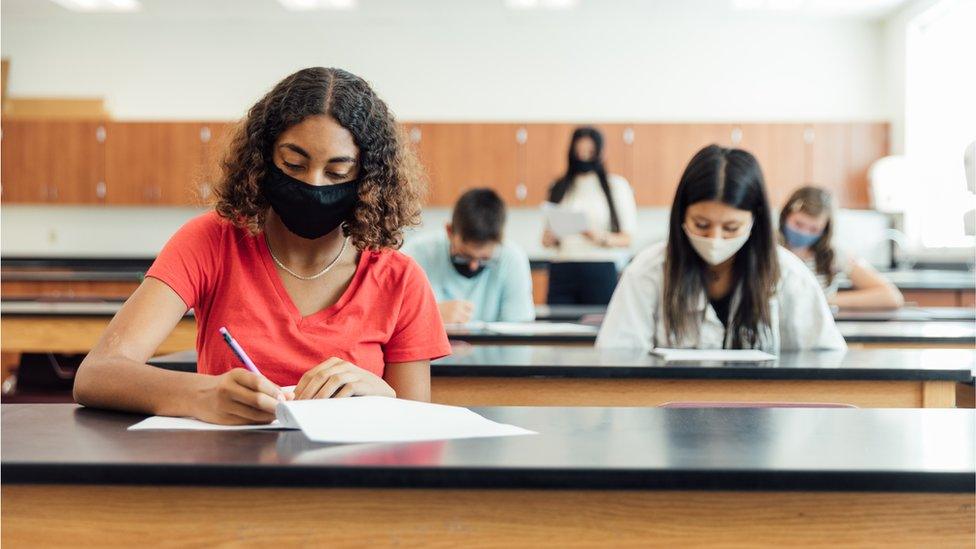
Head teachers of schools signed off exam results, saying there was evidence to back them up
This year students received record high grades in A-Levels, Scottish Highers and GCSEs, which has once again reignited the "are exams getting easier" debate.
We need to be "careful about querying results too much", Holly believes.
"Exams are stressful enough, but throw in a pandemic and the uncertainty of how they'll be assessed and it makes it really difficult."
She also points out that not having actual exam dates may have helped some: "In a normal exam year, you'll have high-achieving students that are predicted to do really well, but, who the night before their exam will sleep badly, or get anxious and mess it up.
"So those freak variables have been mitigated this year because students have opportunities to do tests at other times."
Education secretary Gavin Williamson says he's "hugely grateful for teachers ensuring that, despite the disruption caused by the pandemic, all students were able to get grades this year and so can take their next steps and make their choices about further study or entering the workplace."


Follow Newsbeat on Instagram, external, Facebook, external, Twitter, external and YouTube, external.
Listen to Newsbeat live at 12:45 and 17:45 weekdays - or listen back here.
- Published16 July 2021
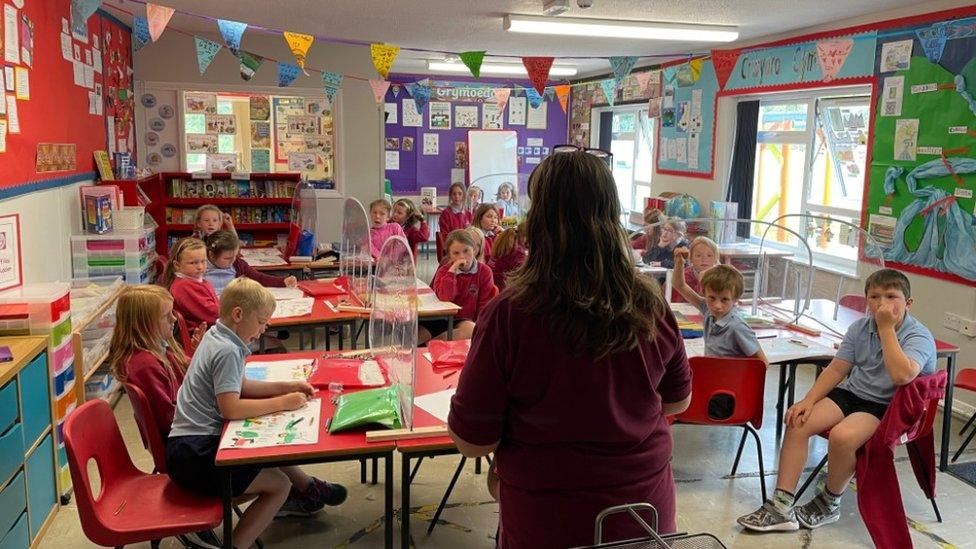
- Published10 August 2021
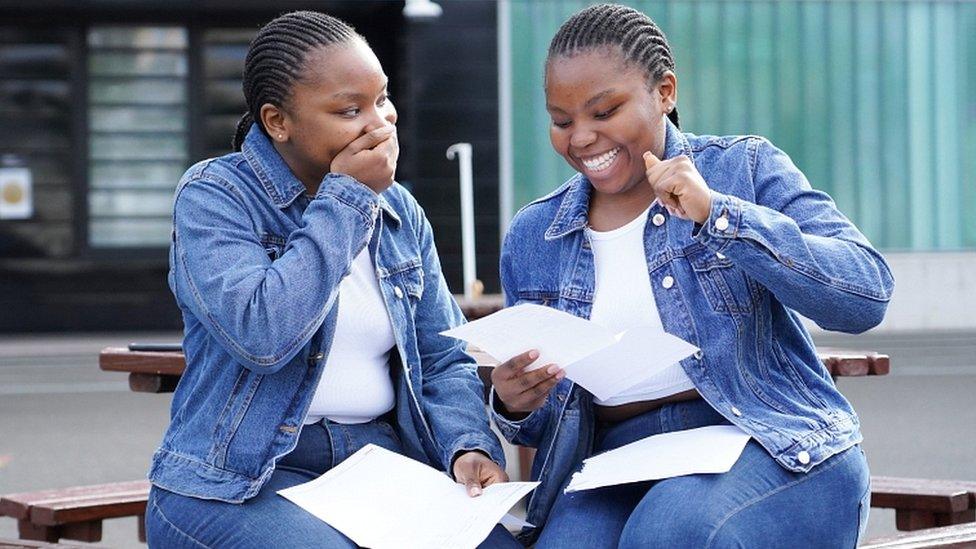
- Published8 August 2021
